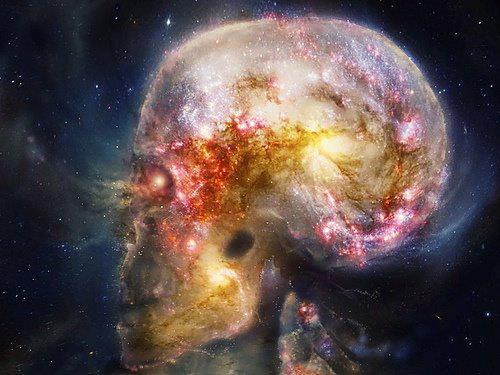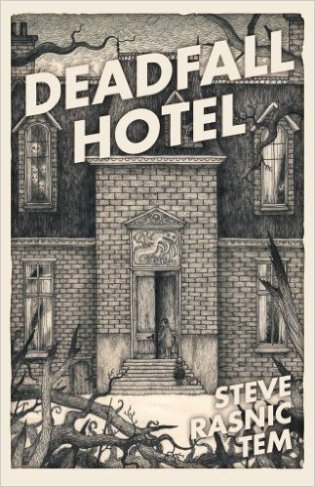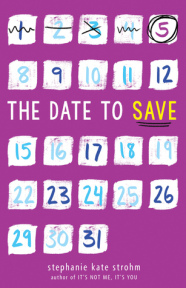
(Image from Imgur)
“Out of the cradle onto the dry land
Here it is standing
Atoms with consciousness, matter with curiosity
Stands at the sea, wonders at wondering
“I, a universe of atoms
An atom in the universe”
– Richard P. Feynman
(With apologies to Feynman for quoting him in a piece about metaphysics.)
The other day (and I mean in one day, because it’s pretty short) I read Whitley Strieber’s book The Key, in which he claims to have had a late-night conversation with one Michael, who Strieber called “The Master of the Key”, a fellow fitting the description of an ascended master of some kind in physical form. I discovered its existence only recently, but it sounded like just my sort of thing, so I sat down in a couple of mini-marathon sessions to devour it. A couple because while it’s short, it’s also dense, and I made myself take a break at one point to let my head stop spinning.
There’s a lot I could be writing about the book. It ended up not being quite what I expected, but should have – much of it is dark, and in retrospect, something Strieber published (he claims the conversation in The Key was real, and thus not something he wrote himself) not being dark would be a surprise. Much of it was optimistic and uplifting – though, here’s one of the dark parts, with major long-lasting consequences for humanity and our souls as a whole if we keep screwing up in certain ways. Much of what he wrote, even in the non-dark stuff, contradicts most of the other material I’ve read (particularly the Seth books) along with how I interpret some of my own experiences.
However, what I specifically want to write about here were two personal experiences I had with the book, one immediately, and one after, erm, sleeping on it.
Immediate: At one point in the conversation Strieber has with “the Master of the Key”, Michael talks a bit about the holographic universe. As I was reading this I was thinking of one of the original interpretations of this theory, that all the universe can be found fractal-like in any one part of it. The quote in the book is Strieber thinking about seeing the whole universe in the tips of his fingers. Almost whimsically, I glanced up from the book to look at one of my own fingertips.
And for the barest fraction of a second, I saw a whole universe.
Admittedly that’s a little bit of an exaggeration – but it didn’t feel like much of one at the time. What I saw for that fraction of a second, very clearly dancing in front of me, was a microscopic universe, as if I was looking at my entire fingertip under a vast microscope and seeing whole galaxies of atoms and others of the tiniest particles interacting with one another.
This jarred my eyes upward, and I suppose that wasn’t enough time for them (or my Third Eye) to adjust, because this time, looking across my room, I was suddenly looking out at a space that seemed almost as vast as the entire universe, my chair to the wall transformed into an uncrossable distance.
Bear in mind that this particular room, my Writing Room, is tiny. I’ve seen bigger walk-in closets. I could probably touch the far walls by lying on the floor and stretching out. And yet for that instant, with eyes apparently tuned to objects the size of microscopic particles – or maybe an all-too-brief awareness of the universe in all its parts – it felt as vast as the space our telescopes can see.
For a moment it actually gave me vertigo. When I told my friend Alexandra about this the next day, I got vertigo again just thinking about it.
I haven’t been able to duplicate this exactly since then no matter how hard I’ve tried, but I still remember the sensation. Granted it’s like remembering the Grand Canyon by looking at a picture of it that’s small enough to fit into your hand – but the memory is also the difference between gazing at that picture having seen it versus having never stood on the canyon’s rim looking out at it with your own eyes.
To a small extent I do now feel as if I’ve floated somewhere in the vastness of space, gazing out at stars and galaxies. (Floating, I mean, not just standing on a planet somewhere in the vastness of space where I regularly gaze out at stars and galaxies.)
Sleeping On It: Overall, my immediate reaction after reading The Key was positive. I did have doubts about a small number of things (particularly the part where Michael discusses machines that are powered by captive souls), but my initial reaction was to be enthusiastic (and also write a long email discussing it to Alexandra).
Then I slept on it.
As a history geek, there’s a particular feeling of disappointment that comes when I watch a historical movie or read a historical novel for the first time, love it, and then find out from some authority that I trust how badly historically inaccurate it was. The next morning, this was the exact feeling I woke up with concerning The Key.
I remember next to nothing about my dreams that night, and what little I do remember had nothing to do with the book. But I woke up with the incredibly distinct feeling and certainty that I’d spent part of the night sitting down with an authority figure I trusted who then proceeded to explain to me all of the things The Key got wrong. The few doubts I had were strengthened, and other doubts had appeared and multiplied. I had a near-memory of being informed (as Alexandra reinforced in her reply email later) that Michael was operating from a “lower” spiritual level and didn’t have the whole picture. One of those literally newly-wakened doubts was that where the book contradicts Jane Roberts’ Seth material, I should go with Seth, who had a much broader perspective.
I’ve awoken plenty of times with the feeling or certainty that I’d had some kind of visitation in the night, usually from a deceased loved one. But this was the first time I’ve woken up not only with the certainty that I’d spent part of the time in class, but with my attitude about something so quickly and radically altered.
I am going to re-read The Key. But this time I’ll be reading it to see if I get a “ping” – or an “anti-ping” – from anything in the book following my nighttime lesson. And maybe I’ll do a more thorough review of the book itself here afterwards.
Advertisements Share this:




